As someone who doesn’t have a brother and has never played international cricket – I only have a sister who has no interest in cricket whatsoever – I thought I’d be uniquely qualified to write an article about cricketing brothers who have represented their country.
My concept is a simple one. We discuss England’s best-known cricketing siblings, we discuss Australia’s best-known cricketing siblings, and then we decide who’d win a fictional contest between the two – The Siblings Ashes.
Sound like fun? In normal circumstances I’d say “not really”. But as half the country seems to be self-isolating at the moment, I think we could all use a bit of light relief.
What’s more, you might actually learn something new. For example, did you know that Richie Benaud had a younger brother who also played Test cricket for Australia? I didn’t.
TEAM AUSTRALIA
The Benauds
First out of the box, and wielding more gravitas than a professor in gravitas at Oxford University, are the aforementioned Benaud siblings.
Richie needs no introduction, of course. He was the doyen of cricket commentators and an Australian icon. He played 63 Tests, scored over 2,000 runs, took 248 wickets, and captained his country with distinction. However, the wildcard here is ‘bro Benaud’.
Younger sibling John was not as famous as his brother but he was a well-respected domestic cricketer for New South Wales nevertheless. He even played 3 Tests for the Aussies in the early 1970s.
His international career was short but eventful. During his second Test match (his first had been unsuccessful) he was told that he wouldn’t be playing in the next game whatever happened. He responded by scoring a superb 142. And was still dropped.
He briefly earned a recall against the Windies some time later but didn’t score any runs and was dropped forevermore. Harsh.
The Husseys
This is a somewhat brazen selection because David never actually played Test cricket. However, he qualifies for this XII by virtue of his 69 ODIs (with a decent batting average of 33) and the fact that his brother was so damn good.
Mike Hussey was a very fine player indeed in all forms of the game. Indeed, it’s amazing to think what he might have achieved had he made his debut before the age of 30. Mr Cricket, as he was affectionately known, scored 6,000 runs at an average of 52. Not too shabby for a later starter.
The Lees
The Lees might sound like an English suburban address but these siblings were very effective cricketers indeed. At one point it looked like elder brother Shane would steal the limelight – he played 45 ODIs and averaged a highly creditable 26 with the ball – but ultimately it was Brett who made the biggest splash with 310 Test wickets at speeds exceeding 90mph.
Here’s a little anecdote for you. When Shane first started playing for Australia his little brother, who nobody had heard of at the time, was working in a sports shop in Sydney. My Australian friend’s mum walked into the shop, mentioned that her little boy loved cricket, and teenaged Brett said “my brother plays professionally, would you like me to get your lad a signed photo of the whole NSW squad?” The next time she visited the shop the photo was waiting for her. What a legend!
The Marshes
It seems appropriate that two of Australia’s least fulfilled cricketers, two men whose careers remained in a quagmire for extended periods, should be called Marsh.
Although some might argue that Mitchell Marsh (who my former co-editor Maxie once claimed has the most Australian name of all time) has lived down to his limited talent level, there’s no doubting that Shaun was meant for greater things. He’s a lovely player to watch and I still can’t believe that he only averaged 34 in his 38 Tests.
It’s interesting that Geoff Marsh, the brothers’ father, also played frequently for Australia. A career average of 33 suggests that he never really fulfilled his promise either.
The Waughs
Waughs. What are they good for? Nearly 20,000 Test runs combined apparently. This power couple are arguably the greatest cricketing siblings of modern times. Plus they get extra marks for being twins.
Mark was like a Porsche, smooth and stylish. Nobody has scored 8,000 runs at 42 in a more aesthetically pleasing way. He’ll always be remembered fondly as a good looking batsman with a penchant for horse trainers. Sadly, however, Mark wasn’t even the best batsman in his own family. In fact, he wasn’t even the best player in his mother’s womb.
Steve was one of the best cricketers of all time. He wasn’t as stylish as his slightly elder bro but he was tougher, more resilient, and more effective. People tend to remember Steve as a superb captain of his country but we shouldn’t forget his 11,000 runs at an average of 51. He also took 92 wickets (33 more than his brother).
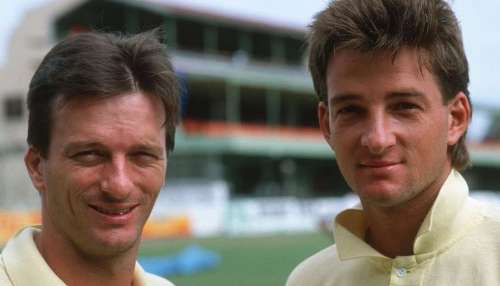
The Chappells
The Aussies certainly have a couple of match-winners anchoring this side. If you thought the Waughs were a one-off then meet the Chappells. Ian averaged a respectable 42 for Australia and Greg a more than respectable 54.
What sets the Chappells apart is that they both actually captained Australia. Ian was tough as nails, grabbed a struggling team by the scruff of the neck, and never lost a single series. Greg wasn’t quite as effective but he still won a lot more games than he lost. What’s more, he scored a century in both innings in his first Test as skipper – a fantastic achievement by the finest Aussie batsman of his generation.
TEAM ENGLAND
The Graces
Did you know that old WG Grace had two cricketing brothers? They were called Edward and Fred. This trio are the perfect candidates to lead the English charge in the Siblings Ashes.
Fun fact: All three of them played together at The Oval against Australia in 1880. England won by five wickets. Ted and Fred did sod all but WG made 152 in the first innings. Obviously.
The Greigs
Now here’s a pairing to make any opponent grovel. Tony was an excellent all-round cricketer and famous Windies wind up merchant. He played over 50 Tests and averaged 40 with the bat and 32 with the ball. Ben Stokes fans should have a think about those numbers.
The other Greig was Ian. Although he played just the two Test matches, Ian was a formidable domestic performer. He also managed to keep his hair. Ahem.
The Cowdreys
Had this been a father and son(s) contest then England would be killing it. Sadly, however, we can’t quite find a way to shoehorn Colin ‘Baron Cowdrey of Tonbridge’ into the side. Instead we’ll have to make do with his not quite so formidable sons, Chris and Graham.
Graham Cowdrey was a likeable county pro but nothing more. He never played for England. His brother, on the other hand, had a short-lived and curious international career.
Chris initially played all five Test matches on England’s tour of India in 1984. He didn’t find much success, however, and was dropped faster than a touchscreen terminal at a virus conference. Although his international career seemed to be over, he was suddenly plucked from nowhere to lead England in a single Test against the West Indies in 1988. Obviously this had absolutely nothing to do with the fact that chairman of selectors Peter May just happened to be his godfather. Ahem.
The Edriches
It’s a case of close but no donut again here for England. The Edrich brothers Bill, Brian, Eric, and Geoff all played first class cricket. But were they any good? Bill was pretty useful. He played 39 Tests and averaged 40.
The star of the family, however, was cousin John who played 77 Tests and averaged 44. Now that’s a quality player. What a shame that he isn’t eligible for this particular match either. A John Edrich / Colin Cowdrey partnership would’ve been good to watch.
The Smiths
Mancunian quartet The Smiths were formed in 1982 when young guitarist Jonny Marr knocked on the door of sexually ambiguous singer Morrissey and asked if he wanted to form a band. They went on to record classic tracks such as Cemetery Gates and Girlfriend In A Coma.
Back on planet earth Robin Smith emerged as one of England’s most pugnacious batsmen of the 1990s. He was a superb and fearless player of pace bowling with the ability to square cut the hell out of anything. Just don’t mention the spinners.
Brother Chris wasn’t quite as good as Robin, but he was plenty good enough to enjoy a long professional career and represent England eight times at the highest level. These siblings had by far the best hair of any couple on show by the way.
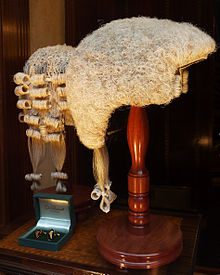
The Brothers Surrey
There’s only one spot left in the squad to take on Australia and here at TFT we’re crippled by indecision. Do we pick Adam and Ben Hollioake or Sam and Tom Curran?
We all know what Adam Hollioake was. He was a combative and much respected white ball specialist who played 35 ODIs, averaging 25 with the bat and 32 with the ball. He was also a resourceful leader. The other three players, however, remain question marks.
Ben Hollioake was a fantastic talent and might well have enjoyed a better career than his one-time England U19 teammate Andrew Flintoff. What a shame that his life was cut short before he could add to his 2 Tests and 10 ODIs.
Sam Curran and Tom Curran are works in progress. Some days I think Sam is the real deal and others I think ‘meh’. As for Tom, I wonder whether he’ll ever add to his two Test caps? I’m sure he’ll play plenty more ODIs though. He’s an excellent competitor who’s usually worth a free bet punt to keep his head at the death.
RESERVES
I’m not going to choose Australian or English specific reserves here. Instead I’m gong to choose siblings who might have represented either side.
The obvious choices are Darren and James Pattinson – the former represented England and the latter still plays for Australia – or perhaps even Craig White and Darren Lehmann. White and Lehmann aren’t ‘proper’ brothers, of course, but they do happen to be brothers in law.
It’s weird that a few of these names have played for England despite being as Australian as vegemite. The only English-born cricketer I can think of who played for Australia was Andrew Symonds.
THE VERDICT
So who would win the siblings Ashes? Sadly I think the Aussies have got this one in the bag. I’m sure WG Grace, Tony Greig, and Robin Smith would do their best to put runs on the board but I doubt they’ll be able to beat the mighty Waughs and Chappells on their own.
The England side also looks short of bowling. There’s no genuine pace, no mystery spin, and just a glut of medium pacers. The Baggy Greens, on the other hand, boast the pace of Brett Lee and the guile of Richie Benaud. We might have to play this one at Durham in May to even things up a bit.
What do you reckon?
James Morgan



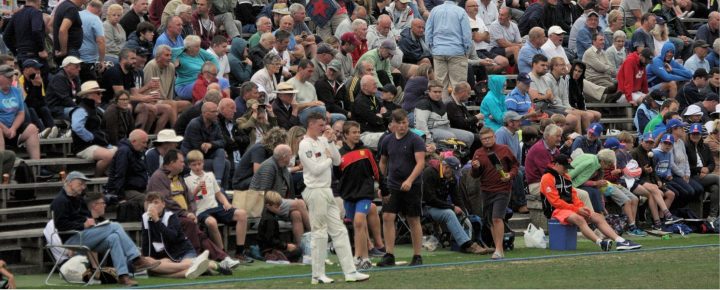
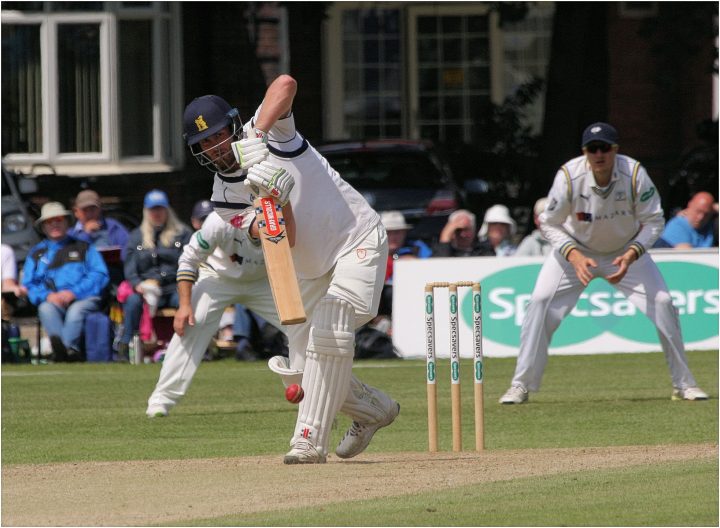
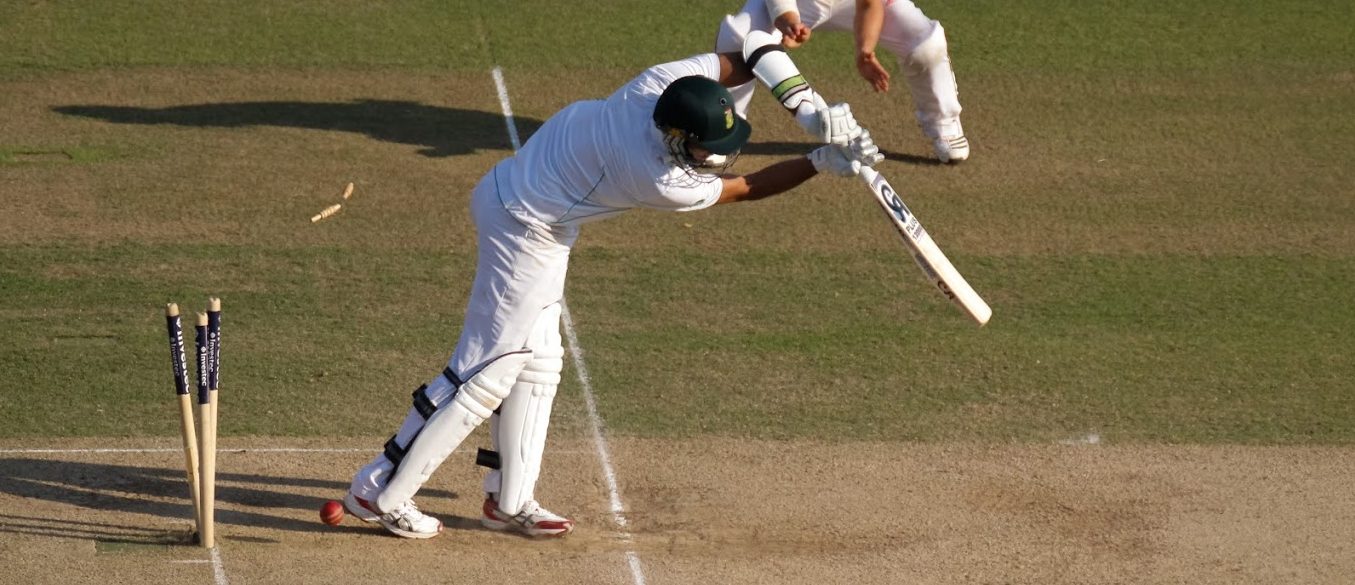
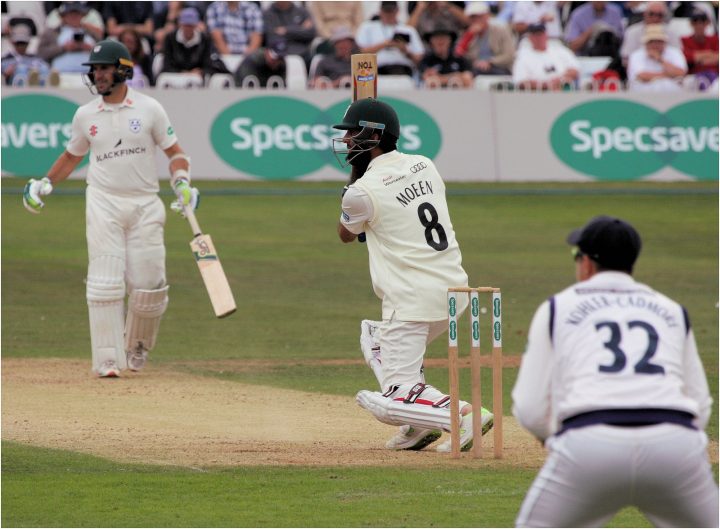


Poor old Trevor Chappell. Completely forgotten.
The Bedser twins would be pretty handy bowlers for England too.
Trevor Chappell? Anyone who bowls underarm doesn’t count as a cricketer :-)
As a younger brother I find this reprehensible, since Trevor was forced to do it by Greg as you well know. Plus, Ian disagreed purely out of self interest – he once said ‘one Chappell ordered it, another bowled it, and if the third Chappell agreed with it they’d think we’re all mad’. And the ultimate arbiter, the Chappell’s mum, Jeanne, was quite clear it was Greg’s fault and they should stop hassling Trevor.
John Wisden wants his almanac back….!
Have to agree that the Graces notwithstanding the Aussies have got this one. I suspect that with a match referee in place W G would come a lot closer to playing as a genuine amateur than he did in real life!. However, you miseed out the Tyldesleys (Johnny and Ernest were brothers in spite of over 20 years separating them) and the Hearne family.
There were only 12 spots (6 families) per side. I tried to pick the ones I think most people would know. The Bedsers were a bit of an oversight though. Ooops.
Ok I am a Lancastrian, but I can’t believe people haven’t heard of the Tyldesleys.
There were a lot of English-born players who turned out for Australia (and South Africa) in the nineteenth century; generally at least until the First World War no-one seemed all that bothered by nationality in sport in the same detail as they are today. Charles Bannerman’s a pretty good example given he faced the first ball in Ashes history (born London, played for Australia). Also, in one family I can’t recall the name off the top of my head, two brothers played for England and one for South Africa.
I’ll nominate Albert and Harry Trott (apparently distant relations of Jonathon).
The former was especially “colourful”. Selected in the 1894/95 series with Australia 2-0 down, he won the next two Tests almost single-handed (including bowling a marathon spell in seering Adelaide heat) but after one poor Test was dumped and moved to England. Here he took 17 wickets in his only two Tests and became still the only player to hit a six over the Lords’ pavilion. Sadly, he sank into gambling and alcoholism and ended up shooting himself in 1914 as the war was breaking out. He left his clothes and £4 to his landlady in a will written on the back of a laundry ticket.
Matt Renshaw was born in Middlesborogh (which counts as England, I think) and has played 11 Tests for Australia. And like Symonds he’s played for Kent!
Surely any side needs a keeper? So I nominate the Comptons. Dennis is obvious, but Les played for Middlesex as a keeper in over 200 games and, according to many, would have played test cricket if he had not made football his priority.
If you’re going to go back to the Graces then there’s a wealth of sibling rivalry through Victorian and Edwardian times.
Let’s start with the Aussies;
The Bannerman’s – Charles, who scored the first test run and brother Alec, who established a tradition straight away by batting during 3 days for 91.
The Gregory’s – Dave, the first test captain and brother Ned who registered the first test duck.
The Trott’s – Harry and brother Albert, still the only batsman to hit over the Lords pavilion.
The Harvey’s – The great Neil and brother Merv who only played 1 test.
Now for the English;
The Gilligan’s – Arthur and Harold. Are they the only English brothers to both captain their test side.
The Studd’s – George and Charles who both went on to be Christian missionaries.
The Gunn’s – George and John (class acts both)
The Hearne’s – George, Alec and Frank who also represented South Africa.
The Richardson’s – Peter and brother Dick who only played 1 test.
The Tyldsley’s Earnest and Johnny (believe Vaughan is related along the line somewhere)
The Wilson’s – Clem and Rockley, both of whom played a couple of tests. .
Then there’s the curious case of the Pattinsons, Darren and James, who had a foot in each camp.
Wow didn’t realise Tony Greig had such a great average as an all rounder. Was his captaincy and fielding also that good? If so, he really must have been the whole package..
Steve is the older twin btw.
Although I have nothing in common physically with the lanky Grieg. Whenever I was asked to bowl, which wasn’t often, I found his action made it easy to interchange between off spinners and off cutters off the same run and picked up a few surprise wickets doing so.
Surely Greig is England’s most underrated all-rounder?
One measure of all-rounders statistically might be by how much their batting average exceeds their bowling. Setting a reasonable minimum of runs and/or wickets (I statsguru’ed this once and it came up with Alastair Cook as England’s best-ever all-rounder!), and disregarding players who were clearly mainly batsmen who were good part-time bowlers (Hammond, Dexter, Woolley), only four players since 1890 exceed plus 1 on this scale.
Rhodes and Stokes are between +3 and +4, Botham is +5…and Greig well over +8. It’s quite amazing that he’s not talked of more often in this company. His batting wasn’t at all shabby–he managed to take hundreds off both the 1974-5 Australians and the 1976 West Indians and score a fine hundred in India–as well as bowling in two styles. Given that he was also captain and a decent slip fielder, he really was a versatile player
“He played over 50 Tests and averaged 40 with the bat and 32 with the ball. Ben Stokes fans should have a think about those numbers.”
Oooh burn…
I statsguru’ed the batting minus bowling average figures for all countries, imposing a minimum of 100 wickets and then ignoring anyone in the results with a batting average of under 30 or less than 2000 runs.
The results are interesting. There are 13 players, of whom as I expected Sobers and Kallis are way out in front (just under +24 and +23 respectively; no-one else is above 15 and only two are above ten).
Stokes is 11th on the list [Greig is joint 7th and Botham 9th]–well behind Shakib al-Hasan, who is the only other current player, in 6th with +8. It’s also worth noting that both Jadeja and Holder are within 150 runs of joining this group, and they would both be much higher than Stokes (Jadeja would be 5th with +10.6 and Holder 10th with +6, leaving Stokes 13th).
It made me start thinking about national biases when thinking about great all-rounders. How many England fans think of Holder (whose batting average is four runs lower but still comfortably over 30, and bowling average six runs lower) as a better all-rounder than Stokes, for example? How many people would think of Flintoff (-1) as a very good if not great all-rounder, but wouldn’t think of Shaun Pollock (+9) or Jadeja–both of whom had/have higher batting averages–in the same way?
And, how underrated is Shakib too, who has also virtually single-handedly carried his team for ten years or more?
How about that article regarding online cricket games I suggested James, given that all proper cricket is cancelled?
https://www.cricket-championship.com/home
Being my favourite though I think I’ve played all of them at one point or other..
John Benaud ended up with much better Test bowling and batting averages than his brother (illustrating the great potential benefit of the small sample size). He was an Australian selector also, and his book Matters of Choice is well worth the read if you ever see it.
Other Australian brothers – from the 50s Archers, from a lot further back, the Trumbles and Gregorys
As boys, my brother and I played a very simple game. Take any book: open it at any page and off you go. Any vowel is a score. We used a as a 2, e as a 1, i as a 4, o as a 3, and u as a 6. Depending on whether you want a long or short innings, you chose one or more consonants as appeals with another consonants following as “not out” and a vowel as out. Simples!
We would pick teams and we always played for England. I don’t remember our averages but Sobers et al, you were not the greatest! Our batting average would have qualified us as second only to DGB but our bowling averages would not have made the record books!
Ron